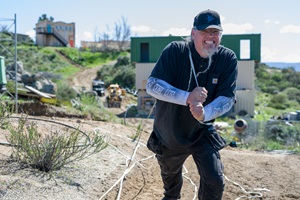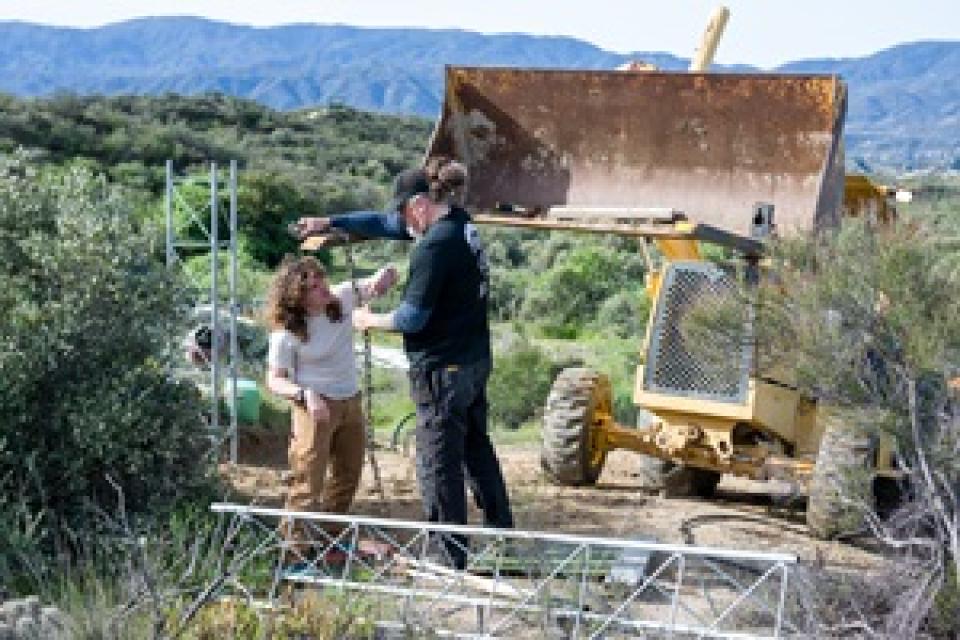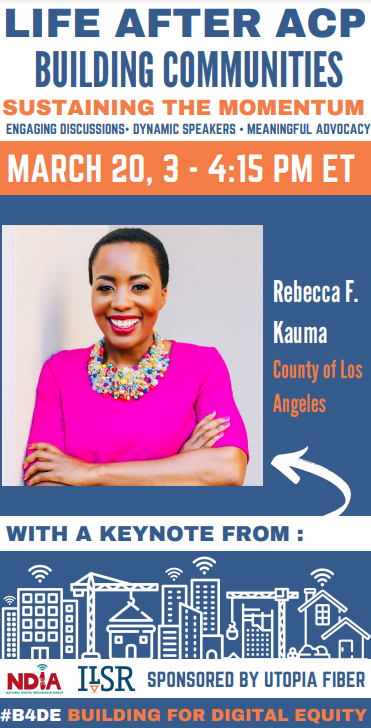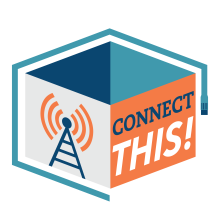
Fast, affordable Internet access for all.

TBB11 marked an exciting development for the Tribal Broadband Bootcamps.
For this latest and newest iteration, TBB co-founder Matt Rantanen graciously permitted TBB to make a permanent fiber ring installation on his property, RantanenTown Ranch, last month. While TBB will continue to host bootcamps in partnership with Tribes in different regions of North America, the launch of this permanent broadband practice arena allows TBB to chart a new path towards even more in-depth and hands-on training.
Here is a photo-filled look at the many days of prep and three days of immersive programming that went into making it happen.
“Just the fact that we saw the fiber model in its open aspect with all the drama and issues right in front of us; my friends is the best learning methodology!” – TBB 11 Attendee

Ready or Not
Of course, building an entire, operating fiber network across RantanenTown Ranch was a massive undertaking that involved a lot of prep work.

If you missed our most recent Building for Digital Equity Livestream – Life After ACP – the virtual event can still be seen in its entirety (below).
The entire event focused on the imminent end of the Affordable Connectivity Program (ACP) and featured a lineup of speakers who shared on-the-ground perspectives and approaches being adopted at the community level to deal with the broadband affordability crisis in the absence of the popular federal program that has served 23 million Americans since its inception two years ago.
As a bonus, we are sharing links to the speakers slide decks below.
The first of two lightning round speakers, Margaret Käufer – President of The STEM Alliance – gave an overview on the short and long-term work her organization is doing in upstate New York in the face of ACP’s demise. You can find her slide deck here.
The second lightning round presenter Jason Inofuentes – Program Manager for the Broadband Accessibility and Affordability Office in Albemarle County, VA – unveiled an ACP supplement program his office is pursuing and how they see things moving forward. Those slides are here.
The first of the main presenters – Monica Gonzales, Digital Equity Supervisor for Methodist Healthcare Ministries in Texas – gave an overview of what her faith-based nonprofit healthcare organization is doing to address affordable connectivity across the 74 county South Texas region served by MHM. Gonzales’ slides are here.
Today, the first Building for Digital Equity livestream of the year will begin at 3 PM ET. The entire event will zoom in on the imminent end of the Affordable Connectivity Program (ACP) with the lineup of speakers sharing on-the-ground perspectives and approaches being adopted at the community level as they work to keep financially-strapped households connected beyond ACP.
Last minute registration are still being accepted to fill up the last few seats for the virtual gathering here.

Here’s the run-of-show:
NDIA’s Amy Huffman will set the table on where things stand with the ACP wind down process before two lightning rounds take center screen.
For the first lightning round Margaret Käufer, President of The STEM Alliance, will give an overview on the short and long-term community work her organization is doing in upstate New York in the face of ACP’s demise. That will be followed by Jason Inofuentes, Program Manager for the Broadband Accessibility and Affordability Office in Albemarle County, VA, who will spotlight an ACP supplement program his office is pursuing and how they see things moving forward.
Bringing together a nationwide cross-section of leading digital inclusion practitioners, the first Building For Digital Equity (#B4DE) livestream of the year is set to zoom in on the imminent end of the Affordable Connectivity Program (ACP).
Co-hosted by the ILSR's Community Broadband Networks Initiative and the National Digital Inclusion Alliance (NDIA), the popular (and free) virtual gathering will focus on “Life After ACP” – as the FCC continues to wind down the program with the $14.2 billion fund on track to run out of money by the end of April.
Set for March 20, 2024 from 3 to 4:15 PM ET, the lineup of speakers will share on-the-ground perspectives and approaches being adopted at the community level as they work to keep financially-strapped households connected beyond ACP.
While virtual seats for #B4DE fills up fast, registration is still open here.
Here’s the run-of-show:
NDIA’s Amy Huffman will set the table on where things stand with the ACP wind down process before two lightning rounds take center screen.

On the most recent episode of the Connect This! Show, co-hosts Christopher Mitchell (ILSR) and Travis Carter (USI Fiber) were joined by regular guests Doug Dawson (CCG Consulting) and Kim McKinley (UTOPIA Fiber) tackle the hard questions in digital equity work now that the ACP is going away. Among the discussion: FCC Chair Jessica Rosenworcel's recent appearance at the national Net Inclusion conference, and what we can learn from her remarks about how to move ahead productively while avoiding easy mistakes and making sure we stay committed to the course.
Email us at broadband@communitynets.org with feedback and ideas for the show.
Subscribe to the show using this feed or find it on the Connect This! page, and watch on LinkedIn, on YouTube Live, on Facebook live, or below.
In the wake of the new rules issued by the Federal Communications Commission (FCC) to prevent digital discrimination, digital equity advocates from California to Cleveland are leveraging the new federal rules to spur local action.
In Los Angeles, city leaders have passed an ordinance to combat what advocates say are discriminatory investment and business practices that leave historically marginalized communities without access to affordable high-quality Internet. Similar efforts to mobilize communities and local officials are underway in Oakland and Cleveland.
In November 2023, the FCC codified rules to prevent digital discrimination, outlining a complaint process whereby members of the public can offer evidence of digital discrimination being committed by Internet service providers (ISPs). Though the FCC order does not outline local policy solutions, nor does it empower localities to carry out enforcement of the federal rules, it has the potential to open up conversations between local advocates and elected officials about new ordinances, stronger enforcement of existing ones, or public investment to facilitate competition and the building of better broadband networks.
Los Angeles First City in Nation To Officially Define Digital Discrimination At Local Level
The local organizing work behind the proposed ordinance in LA dates back to 2022 when digital equity advocates began to document inequitable broadband access across the county.

The fading sound of holiday bells and soft stillness that comes with plunging temps can only mean one thing; it's January again, which means it's time to break out the crystal ball and have a conversation about the year to come. Joining Christopher in the recording booth are a slew of CBN staffers new and veteran to join in the collective task of putting words to feelings both foreboding and optimistic about the year to come.
Will we see the first BEAD-connected home this year? Will the Affordabel Connectivity Program get re-funded? How will the maps look in 11 more months, with slews of challenge data? How many new municipal ftth networks will we see founded in 2024? State preemption laws rolled back, or re-introduced? Tune in for answers to all these and more.
This show is 48 minutes long and can be played on this page or via Apple Podcasts or the tool of your choice using this feed.
Transcript below.
We want your feedback and suggestions for the show-please e-mail us or leave a comment below.
Listen to other episodes or view all episodes in our index. See other podcasts from the Institute for Local Self-Reliance.
Thanks to Arne Huseby for the music. The song is Warm Duck Shuffle and is licensed under a Creative Commons Attribution (3.0) license.

Join us Tuesday, January 16th at 2pm ET for the latest episode of the Connect This! Show. Co-hosts Christopher Mitchell (ILSR) and Travis Carter (USI Fiber) will be joined by regular guests Doug Dawson (CCG Consulting), Kim McKinley (UTOPIA Fiber), and special guest Roger Timmerman (Executive Director UTOPIA Fiber) to prognosticate all of the broadband things for 2024: will ACP get renewed? Which states will get BEAD right, and which are showing signs of cracking under the pressure? What did we see at CES that will impact the broadband market? Is the fiber market going to pause? Tune in for titillating discussion on these topics and many more.
Email us at broadband@communitynets.org with feedback and ideas for the show.
Subscribe to the show using this feed or find it on the Connect This! page, and watch on LinkedIn, on YouTube Live, on Facebook live, or below.
In 2021, California passed Senate Bill 156, an ambitious plan allocating $6 billion to shore up affordable broadband access throughout the state.
Among the most notable of the bill’s proposals was a plan to spend $3.25 billion on an open-access statewide broadband middle-mile network backers say could transform competition in the state.
An additional $2 billion has also been earmarked for last mile deployment. Both components will be heavily funded by Coronavirus relief funds and federal Broadband Equity, Access, and Deployment (BEAD) subsidies as well as California State Government grants – with all projects to be finished by December 2026 as per federal funding rules.
But while California’s proposal has incredible potential, activists and digital equity advocates remain concerned that the historic opportunity could be squandered due to poor broadband mapping, a notable lack of transparency, and the kind of political dysfunction that has long plagued the Golden State.
Massive Scale, Big Money, Endless Moving Parts
Still, California’s prioritization of open access fiber networks could prove transformative.
Data routinely indicates that open access fiber networks lower market entry costs, boost overall competition, and result in better, cheaper, faster Internet access. Unsurprisingly, such networks are often opposed by entrenched regional monopolies that have grown fat and comfortable on the back of muted competition.
A new chapter in state-Tribal relations is being written as the importance of robust and reliable telecommunication becomes all-too-apparent, especially in the face of more frequent extreme weather events. For the first time, a Tribe in California is building high-speed Internet infrastructure in collaboration with the state, thanks to the resilience of the Hoopa Valley people.
Tucked along the Trinity River in the northwestern corner of the state, the Hoopa Valley Reservation is located in a rural and heavily wooded region that spans over 89,000 acres, home to over 2,500 Tribal citizens. Last summer, the area was ravaged by closely-timed wildfires and thunderstorms, followed by massive landslides that collapsed into the region’s riverways, including the Trinity River, a sacred body of water for the Hoopa Tribe.
As the river turned to mud and dead fish began to wash up on its banks, alarmed residents had limited means of connecting with one another, getting timely information about what was going on, or contacting emergency services. That was because of a hidden casualty of the wild weather: the Tribe’s wireless Internet network, which sustained severe damage that not only hindered communication but also extended the time it took to assess the damage.